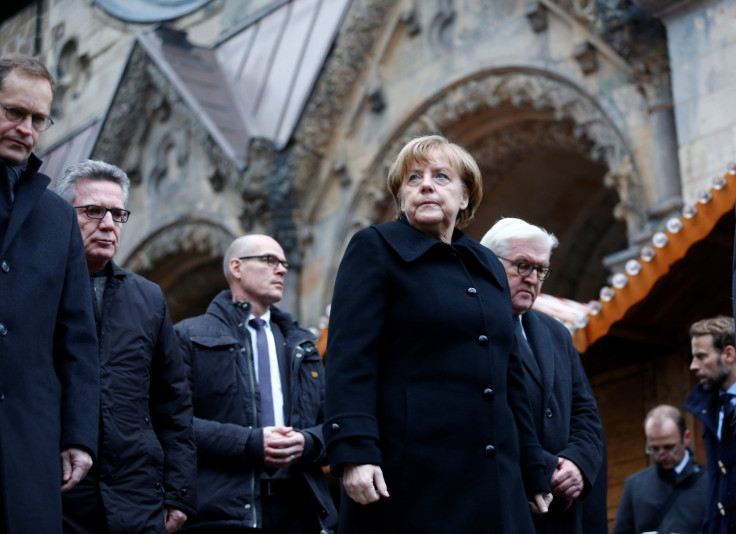Is Germany Racist? Berlin Police Mistakenly Arrest Pakistani Man In Truck Attack

After arresting a Pakistani man Monday on the scene of what authorities are investigating as a terrorist attack — only to set him free the next day after a lengthy police hearing — German officials marked yet another example of what has become a widely recognized trend of racial profiling in the country.
A committee on eliminating racial discrimination within the United Nations Center for Human Rights published a report in May accusing German police of “de facto discrimination,” and urging authorities in the country to pass a law defining such discrimination.
“The dramatic increase in the number of refugees and asylum seekers had led to a shameful and dangerous reaction from the population, and the growth of movements such as Patriotic Europeans against the Islamization of the West was an issue of concern,” the committee said in a summary of its findings. “Racism was not only a right-wing phenomenon, but a very serious problem, which was acquiring electoral legitimacy, and this must be addressed.”
The German government denied such profiling among its ranks despite a string of uninvestigated possible hate crimes, German public broadcaster Deutsche Welle reported.
In a piece published Thursday on Vox, Knight-Mozilla OpenNews Fellow Sandyha Kambhampati, who is a first-generation Indian-American, recalled her first-hand experience with German police upon moving to Berlin.
“Nine months and 23 identification checks later, I’m tired of getting asked where I’m from and where my ID is,” she wrote. “These stops have made me question what people see when they look at me. Getting humiliated on the street by authorities has shown me that for some people, I’m just another ‘brown’ person who could be a terrorist or a criminal. ”
Like the U.S. and the rest of Europe, Germany has seen a surge in far-right, nativist sentiment, culminating in the regional election victory of the right-wing, vocally anti-Islam Alternative fur Deutschland party over the Christian Democratic Union, Chancellor Angela Merkel’s party, in her home state in September. AfD now boasts representation in nine state parliaments — up from zero in the previous elections (with the exception of a defector from another party, who resigned months later).
Rather than standing by her past commitments to welcoming immigrants fleeing military conflicts, Merkel has more recently erred on the side of exclusion.
In mid-October, Merkel pledged to cut immigrants’ welfare access, and said in a statement the Berlin attack Monday “would be particularly hard to bear for all of us if it was confirmed that a person committed this crime who asked for asylum in Germany,” the Guardian reported.
“This would be particularly repugnant in the face of the many Germans who have dedicated themselves day after day to helping refugees,” she reportedly said, “and in the face of the many people who actually need our protection and try to integrate into our country.”
In the wake of the Monday evening attack, many — including, notably, Brexit architect and former far-right British Member of Parliament Nigel Farage — placed the blame on Merkel’s liberal stance on immigration.
Terrible news from Berlin but no surprise. Events like these will be the Merkel legacy.
— Nigel Farage (@Nigel_Farage) December 20, 2016
Germany had the highest number of asylum applicants in 2015, with 442,000 — more than double 2014’s 173,000 applications, and more than a third of the European Union total, data from Eurostat show. The country ranks sixth, however, in terms of refugees accepted per capita, according to the Pew Research Center, which also found 67 percent of Germans disapproved of Europe’s handling of the crisis, compared to 26 percent who approved.
Anti-immigrant sentiment in Germany took a turn for the worse in January 2016 when a wave of mass sexual assaults erupted in Cologne, Hamburg and other German cities, prompting many male refugees to take to the streets and publicly denounce the violence.
But Germans themselves have been behind much of the violence involving refugees in the past year, as refugee shelters have weathered at least six arson attacks by far-right nationalists in 2016.
If the events following Monday’s attack are any indication, nativist Germans’ views of immigrants aren’t likely to improve: The morning after the truck driver plowed through a crowd at a Christmas market in the city center, killing 12 people and injuring around 50, German police raided a refugee shelter at a defunct Berlin airport where authorities said the suspect may have lived.
© Copyright IBTimes 2024. All rights reserved.






















